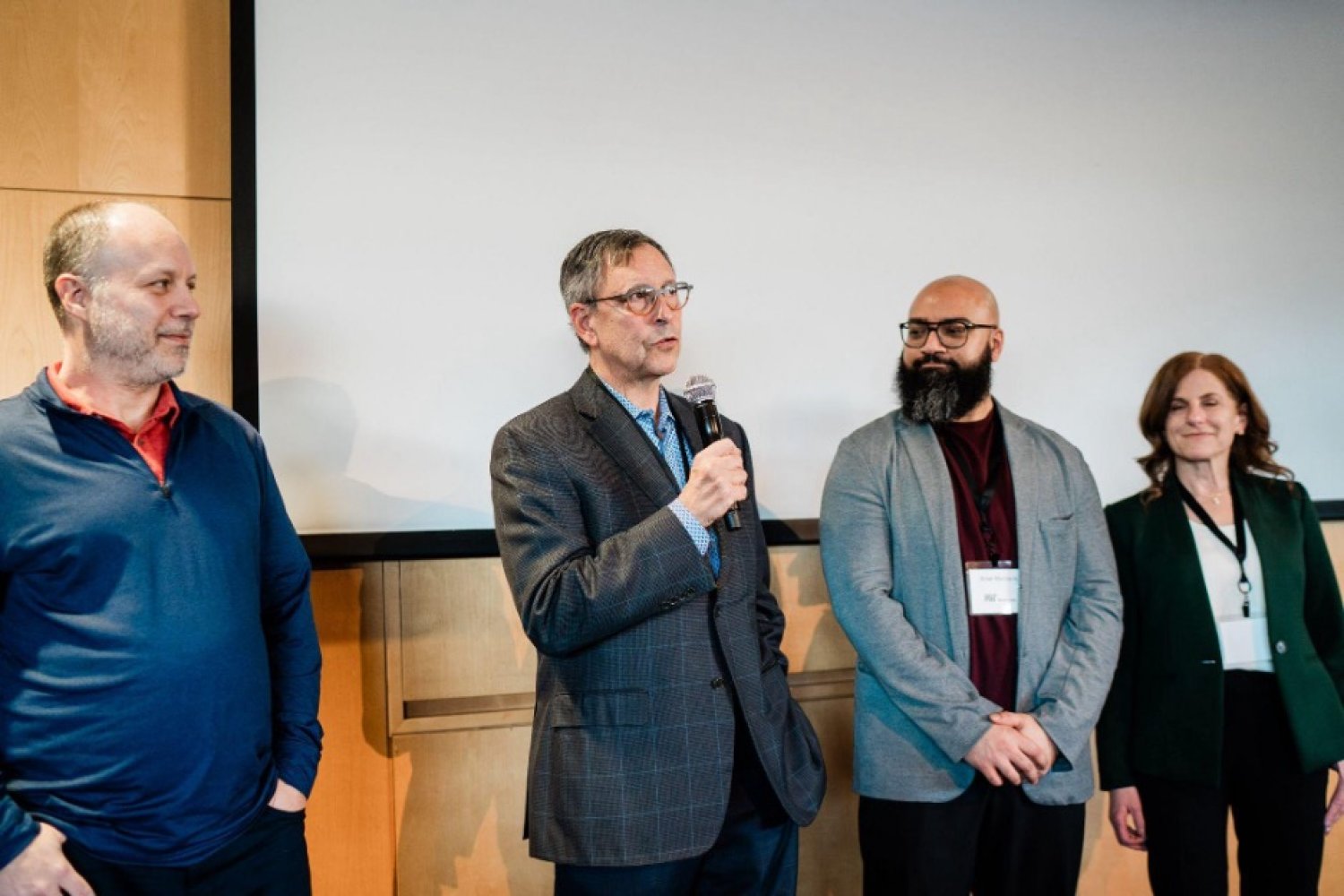Evan Kharasch, professor of anesthesiology and vice chair for innovation at Duke University, has developed two approaches that may aid in fentanyl addiction recovery. After attending MIT’s Substance Use Disorders (SUD) Ventures Bootcamp, he’s committed to bringing them to market.
Illicit fentanyl addiction is still a national emergency in the United States, fueled by years of opioid misuse. As opioid prescriptions fell by 50 percent over 15 years, many turned to street drugs. Among those drugs, fentanyl stands out for its potency — just 2 milligrams can be fatal — and its low production cost. Often mixed with other drugs, it contributed to a large portion of over 80,000 overdose deaths in 2024. It has been particularly challenging to treat with currently available medications for opioid use disorder.
As an anesthesiologist, Kharasch is highly experienced with opioids, including methadone, one of only three drugs approved in the United States for treating opioid use disorder. Methadone is a key option for managing fentanyl use. It’s employed to transition patients off fentanyl and to support ongoing maintenance, but access is limited, with only 20 percent of eligible patients receiving it. Initiating and adjusting methadone treatment can take weeks due to its clinical characteristics, often causing withdrawal and requiring longer hospital stays. Maintenance demands daily visits to one of just over 2,000 clinics, disrupting work or study and leading most patients to drop out after a few months.
To tackle these challenges, Kharasch developed two novel methadone formulations: one for faster absorption to cut initiation time from weeks to days — or even hours — and one to slow elimination, thereby potentially requiring only weekly, rather than daily, dosing. As a clinician, scientist, and entrepreneur, he sees the science as demanding, but bringing these treatments to patients presents an even greater challenge. Kharasch learned about the SUD Ventures Bootcamp, part of MIT Open Learning, as a recipient of research funding from the National Institute on Drug Abuse (NIDA). He decided to apply to bridge the gap in his expertise and was selected to attend as a fellow.
Each year, the SUD Ventures Bootcamp unites innovators — including scientists, entrepreneurs, and medical professionals — to develop bold, cross-disciplinary solutions to substance use disorders. Through online learning and an intensive one-week in-person bootcamp, teams tackle challenges in different “high priority” areas. Guided by experts in science, entrepreneurship, and policy, they build and pitch ventures aimed at real-world impact. Beyond the multidisciplinary curriculum, the program connects people deeply committed to this space and equipped to drive progress.
Throughout the program, Kharasch’s concepts were validated by the invited industry experts, who highlighted the potential impact of a longer-acting methadone formulation, particularly in correctional settings. Encouragement from MIT professors, coaches, and peers energized Kharasch to fully pursue commercialization. He has already begun securing intellectual property rights, validating the regulatory pathway through the U.S Food and Drug Administration, and gathering market and patient feedback.
The SUD Ventures Bootcamp, he says, both activated and validated his passion for bringing these innovations to patients. “After many years of basic, translational and clinical research on methadone all — supported by NIDA — I experienced that a ha moment of recognizing a potential opportunity to apply the findings to benefit patients at scale,” Kharasch says. “The NIDA-sponsored participation in the MIT SUD Ventures Bootcamp was the critical catalyst which ignited the inspiration and commitment to pursue commercializing our research findings into better treatments for opioid use disorder.”
As next steps, Kharasch is seeking an experienced co-founder and finalizing IP protections. He remains engaged with the SUD Ventures network as mentors, industry experts, and peers offer help with advancing this needed solution to market. For example, the program’s mentor, Nat Sims, the Newbower/Eitan Endowed Chair in Biomedical Technology Innovation at Massachusetts General Hospital (MGH) and a fellow anesthesiologist, has helped Kharasch arrange technology validation conversations within the MGH ecosystem and the drug development community.
“Evan’s collaboration with the MGH ecosystem can help define an optimum process for commercializing these innovations — identifying who would benefit, how they would benefit, and who is willing to pilot the product once it’s available,” says.
Kharasch has also presented his project in the program’s webinar series. Looking ahead, Kharasch hopes to involve MIT Sloan School of Management students in advancing his project through health care entrepreneurship classes, continuing the momentum that began with the SUD Ventures Bootcamp.
The program and its research are supported by the NIDA of the National Institutes of Health. Cynthia Breazeal, a professor of media arts and sciences at the MIT Media Lab and dean for digital learning at MIT Open Learning, serves as the principal investigator on the grant.
